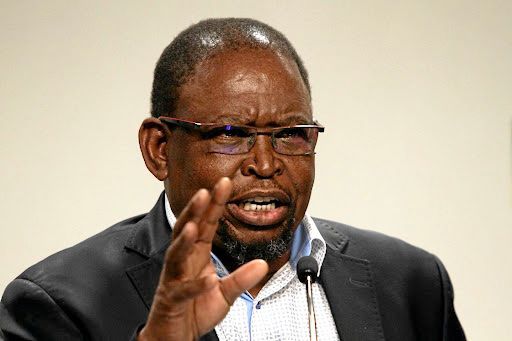Whitney Mabiya.
The resolution of the energy crisis and enhanced logistics to deliver goods to markets competently are among the things that Finance Minister Enoch Godongwana says are necessary for South Africa to become a desirable investment location. He delivered a virtual speech to American investors at the SA Tomorrow Investor Conference in New York.
In an attempt to draw in new investors, the government and private sector of South Africa are concentrating the conference on finding solutions to the nation’s infrastructure and logistics issues.
According to him, the nation’s main issue is its economy’s ability to pay off its mounting debt.
“We, first and foremost, have focused on curtailing expenditure, there are a whole range of measures which are intended to curtail this expenditure. We make the point, for instance, that we’ve got to contain the wage bill and among other things, it is voluntary severance package is to manage national attrition. There’s some institutions there which are dealing with this. Think the interesting figures there was that the natural attrition in government was 70,000 employees per annum. So you manage the wage bill, reorganize how government
works and reorganized institutions.”
Lesetja Kganyago, the governor of the Reserve Bank, also attempted to clarify why the nation’s monetary policy was based on an inflation targeting framework in a virtual speech at the event. The framework allows the central bank the latitude it needs to adjust its instruments and bring inflation closer to its objectives.
According to him, the Bank uses monetary policy tools to control the interest rate cycle and core inflation.
“Why has the society become intolerant of inflation? If you look at South Africa’s headline inflation, it has risen up, but now to 5.4, and not a train smash, we are still within the target – we would like it towards 4.5. If you look at South Africans in this room, their inflation rate is actually standing at about 4.8. The poor South Africans who are in decile one, poor South Africans, they are facing inflation of just over 9%. I guess by now you get the drift. Any developmental strategy that would suggest that you must tolerate high inflation is anti-poor and this central bank is determined to protect the income of the poor.”
In a world of global deflation, Kganyago has presented a sobering perspective on the necessity of raising interest rates further.
“When people ask on what basis and we justify the hiking and, you know, one of the things I have learned in this job is that English is more important than economics. So you check the central banks, the advance because central banks, they talked about keeping rates high for longer. Now they are saying higher for longer. Some of them are saying higher for long. And I and that is a central thing… to what does not reflect? It reflects the uncertainty that the central banks are facing at the moment. And so you have to constantly look at these risks and see what we could actually do and point us back to our previous decision. What is clear is that the current persistent levels of inflation cannot be dealt with by monetary policy alone, and one of the things that comes is that fiscal is going to have to play the party and come to the party.”










